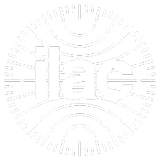Inspection News
Quality Control in Supply Chain Management: The Crucial Role of Auditing in Ensuring Product Quality and Traceability
In the context of globalization and fierce market competition, supply chain management has become a critical factor for businesses to ensure product quality and maintain customer trust. One of the most important tools to achieve this goal is auditing in supply chain management. Auditing not only helps ensure product quality but also supports accurate and transparent traceability, thereby creating a sustainable and efficient supply chain.
1. What is Auditing in Supply Chain Management?
Auditing in supply chain management is the process of evaluating and inspecting various elements within the supply chain, from raw materials and production processes to finished products and distribution. The purpose of auditing is to ensure that all components of the supply chain meet certain quality standards and that their origins can be easily traced.
2. The Role of Auditing in Ensuring Product Quality
Product quality is a decisive factor in the success or failure of a business. Auditing within the supply chain plays a crucial role in:
- Ensuring Quality Standards: Auditing helps determine whether the materials and products within the supply chain meet the required quality standards. This helps prevent substandard products from entering the market, thereby protecting the brand’s reputation.
- Early Detection of Issues: Through auditing, quality-related issues can be identified early, allowing businesses to take timely corrective actions, thus minimizing risks and the costs associated with product recalls or defective goods.
- Enhancing Customer Trust: Customers are increasingly concerned about product quality and production processes. Auditing enables businesses to demonstrate their commitment to quality, thereby strengthening customer trust.

3. Traceability in the Supply Chain
Traceability is the ability to track and identify the origin of a product or material throughout the entire supply chain. This is becoming increasingly important as consumers and regulatory bodies demand transparency. Auditing supports traceability by:
- Recording Information at Every Stage: During the auditing process, detailed information about each stage of the supply chain, including the origin, production process, and storage, is recorded. This enables businesses to easily trace the origin of any product when necessary.
- Preventing Fraud and Counterfeiting: Effective traceability helps prevent fraud and counterfeiting, protecting both businesses and consumers.
- Compliance with Legal Regulations: Many industries require products to have traceability capabilities to comply with legal regulations. Auditing ensures that businesses meet these requirements.
4. Challenges in Supply Chain Auditing
While auditing offers numerous benefits, it also presents challenges that need to be addressed:
- Complexity of the Supply Chain: Global supply chains are becoming increasingly complex, with multiple suppliers and different production processes, making auditing more challenging.
- Auditing Costs: Conducting audits across the entire supply chain can be expensive, requiring significant investment in finances and resources.
- Technological Innovation: The rapid development of technology requires businesses to continuously update and apply new auditing methods to keep up with market demands.
5. Conclusion
Auditing in supply chain management is an indispensable tool for ensuring product quality and traceability. In a world increasingly focused on transparency and quality, investing in auditing not only helps businesses protect their brand but also enhances customer trust and ensures compliance with legal regulations. Despite facing numerous challenges, auditing remains a key factor in building and maintaining an efficient and sustainable supply chain.











